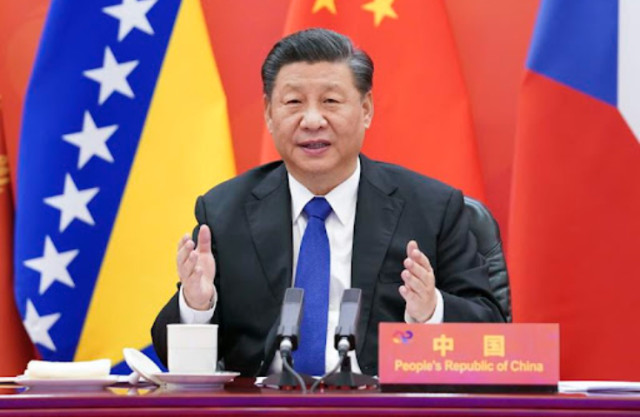Chinese leader Xi Jinping will host African leaders at a dinner in Beijing on Wednesday, kicking off the city’s biggest summit in years.
This year's summit will hinge on bilateral cooperation in infrastructure, energy and education.
China, the world’s number two economy, is Africa’s largest trading partner and has sought to tap the continent’s vast troves of natural resources including copper, gold, lithium and rare earth minerals.
It has also furnished African countries with billions in loans that have helped build much-needed infrastructure but also sometimes stoked controversy by saddling governments with huge debts.
Following the summit invitation, 25 African leaders have arrived in Beijing or confirmed attendance at this week’s China-Africa forum, according to an AFP report.
The forum will kick off Wednesday evening with a family photo and a lavish dinner in the Great Hall of the People, followed by an opening ceremony in which Xi will deliver a speech the next day.
Chinese state media has this week lauded Xi as a “true friend of Africa”, claiming Beijing’s ties were reaching “new heights” under his stewardship.
As of Wednesday, the Chinese leader has held talks with over a dozen African counterparts in Beijing, a tally of state media reporting showed.
Meeting Tuesday with Bola Tinubu, president of Nigeria, Xi called for great cooperation in the “development of infrastructure, energy and mineral resources”, state news agency Xinhua said.
Also in talks with Zimbabwean President Emmerson Mnangagwa that same day, he promised cooperation in “investment, trade, infrastructure, mineral resources” and others.
He also backed Zimbabwe in its struggle against “illegal sanctions” — imposed by the United States in response to corruption and human rights abuses by the country’s leadership.
“Deepening economic engagement with Africa across the board” is one of Beijing’s key goals this week, Zainab Usman, director of the Africa Programme at the Carnegie Endowment for International Peace, told AFP.
“In specific areas, even where such an expanded engagement may not make economic sense, it will be driven by geopolitical reasons,” she explained.
AFP




















